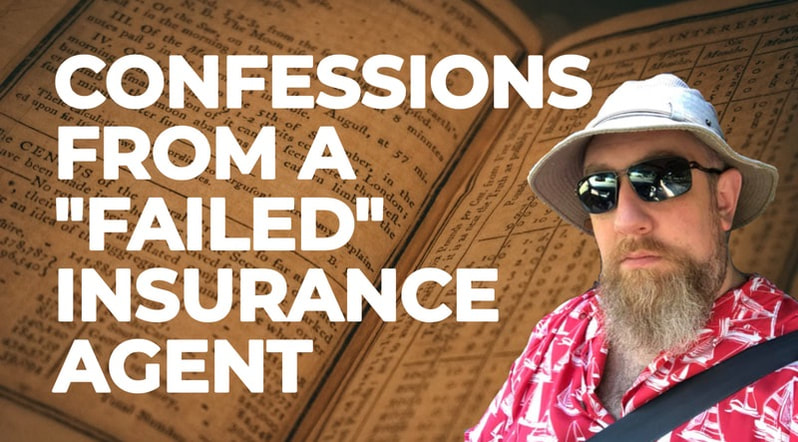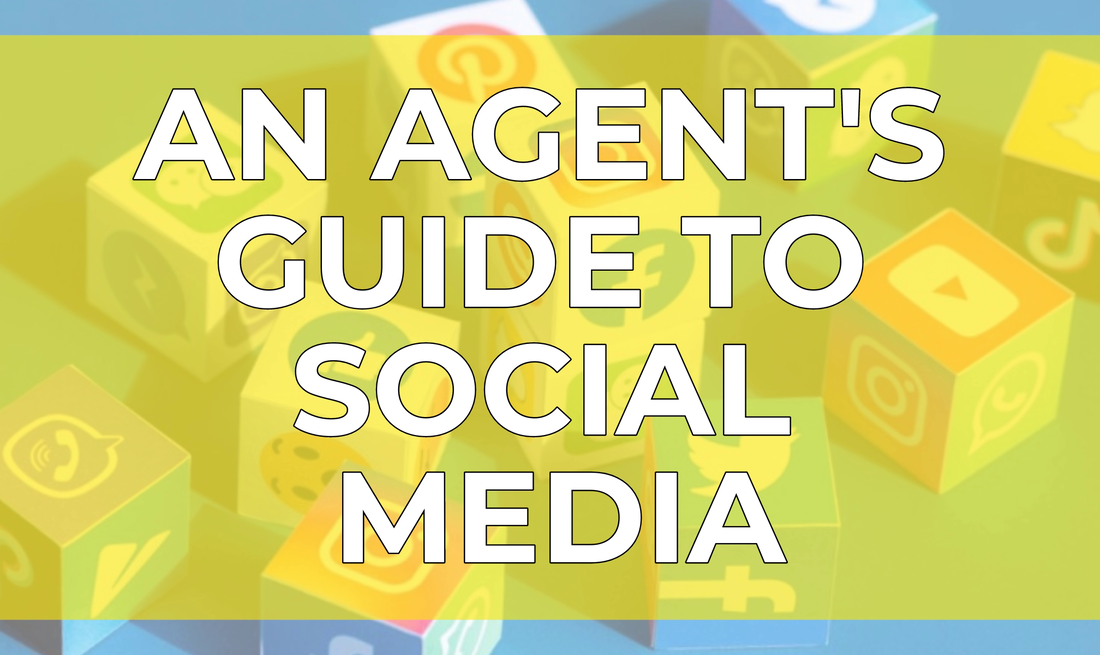Let’s just get something straight right out of the gate: this whole “professional persona” thing we were all trained to put on? You know, the forced smile, the voice two octaves higher, the beige business-casual wardrobe that makes you look like a sentient Post-it Note? Yeah, it’s tired. It’s a lie. And worse than that—it’s costing you.
Here’s the thing most agents figure out too late: being fake might get you a few deals early on, but it won’t build you a brand. And it definitely won’t build a book full of loyal clients who trust you enough to refer their friends, family, or—dare we dream—their mother-in-law.
So let’s talk about being you. The real you. The one with a personality, with preferences, with actual opinions. The one who laughs too loud, wears sneakers to the office, and doesn’t have a pre-scripted customer service voice. The one people actually want to buy from.
The Lie of the "Professional Mask"
Somewhere along the line, someone told us we had to separate who we are from how we show up in business. Probably someone in khakis named Chad who hasn’t sold a damn thing since 2003. But here’s what happens when you live behind that professional mask for too long:
Burnout. Pretending to be someone else all day, every day? Exhausting. It’s emotional CrossFit, and nobody’s handing out protein shakes.
Attracting the wrong clients. The ones who expect you to stay in character forever. The ones who get mad when they hear your “real” voice on a voicemail. The ones who are allergic to your actual personality. Spoiler alert: those clients don’t stick around.
Building a team that doesn’t actually fit. You faked who you were, so now you’re surrounded by people who fit the act—not your real culture. And you wonder why turnover’s high and morale’s low?
Let me be blunt: authenticity isn’t a branding tactic. It’s your oxygen. Try holding your breath and see how well that goes.
Personality Is Your Competitive Advantage
In a sea of beige agents who all promise “exceptional customer service,” your personality is what stands out. People buy from people. Not robots. Not walking policy manuals. People.
If you’re goofy—be goofy.
If you’re intense and passionate—own it.
If you’re the calm, quiet, steady type—let that shine.
Authenticity doesn’t mean “loud.” It means honest. And when your personality comes through in your marketing, in your phone calls, in the way your agency communicates with the world, the right people will find you.
You don’t need every client. You need the right clients. The ones who dig your vibe. The ones who laugh at your jokes and trust your advice. The ones who feel like they’re working with a human being—not someone auditioning for a job at State Farm HQ.
Culture Shouldn’t Be a Costume
Too many agencies try to copy what they think a successful agency looks like instead of leaning into what makes them great. You don’t need to be the next [insert name of big-box agency down the street]. You need to be the first, realest version of you.
So when it comes to culture—don’t perform. Create.
Want to be the chill office that blasts classic rock and has casual Fridays every day? Do it. Want to be the ultra-high-performance agency that starts each day with a sales huddle and a gong? Go for it. Want to be the agency that brings their dogs to work and has a kombucha fridge? Weird—but also, rock on.
Whatever your culture is, let it be. Because the right team members—the ones who’ll stick, contribute, and thrive—aren’t just looking for a paycheck. They’re looking for a place that feels like home. A place where they don’t have to act either.
And if your staff is busy pretending to be someone else? Trust me, your clients will smell it. Fake culture rots from the inside out.
Let’s Talk Dress Code: You’re Not in Court
Unless your office is in a courthouse (in which case, good luck and God bless), there’s no law that says you have to wear a suit to sell insurance. If that’s your style—great. But don’t dress like someone you’re not just because you think it makes you look more “professional.”
Professional doesn’t mean stiff. It doesn’t mean uncomfortable. It doesn’t mean you’ve got to wear a tie so tight it strangles your personality. It means that you behave and provide advice from a place of educated authority.
Dress in a way that makes you feel confident. Comfortable. Like yourself. Your clients are showing up in hoodies, polos, gym gear, and sundresses. They don’t need their insurance agent to look like they’re on their way to testify.
More importantly—clients can tell when you’re trying too hard. Nothing kills trust like desperation.
Your Real Voice > Your Customer Service Voice
Let’s talk about the phone voice. You know the one. It’s two steps away from being a Disney character. Polished. Cheery. Completely disconnected from how you actually talk to humans.
Now, I’m not saying answer the phone like you’re calling a buddy to complain about the Jets again. But I am saying—talk like a real person. Be warm. Be genuine. Be you.
Why? Because the relationship starts with the voice. If your “customer service voice” is a character you’re playing, then every conversation becomes a scene. And spoiler alert: nobody wants to do business with an actor. They want to do business with someone they can trust.
And trust only comes when your words sound like you mean them.
The Compound Interest of Being Real
Here’s the kicker: authenticity pays long-term. You might lose a few deals early on because you didn’t “fit the mold.” But over time? You’ll gain a tribe.
Clients who stay. Who refer. Who defend you when a competitor calls. Who ride with you through price hikes and policy changes because they know you and they like you.
You’ll build a team that believes in the mission because they’re not just punching a clock—they’re showing up to a place where they belong.
You’ll find that you enjoy your business more. That it feels less like work and more like something you were actually meant to do.
And maybe—just maybe—you’ll stop waking up dreading Mondays because you don’t have to wear a costume anymore.
Final Thoughts: The Energy Audit
If you’re not sure whether you’re being real or playing a role, do a quick audit:
Do you change your voice when you pick up the phone?
Do you feel drained after a long day with clients?
Do you worry your team wouldn’t like the “real” you?
Do you feel like your agency has to look a certain way to be taken seriously?
If the answer to any of those is yes—it’s time to strip off the mask.
Because you, my friend, are good enough. Actually—you’re the secret sauce. And the sooner you realize that, the sooner your agency stops looking like everyone else’s and starts becoming a brand people remember.
Authenticity isn’t a strategy. It’s a decision.
Make it.
.png?width=180&height=65&name=Untitled%20design%20(29).png)




